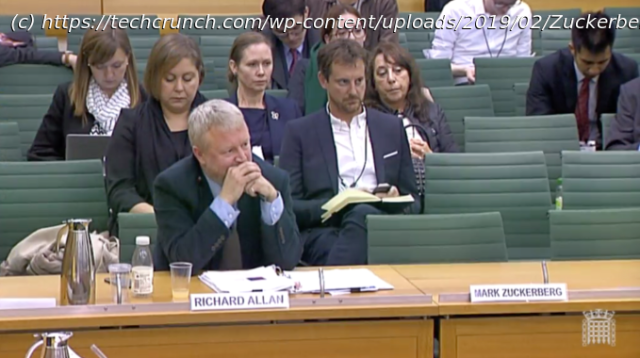The German Federal Cartel Office’s decision to order Facebook to change how it processes users’ personal data this week is a sign the antitrust tide could at last be turning against platform power. One European Commission source we spoke to, who was commenting in a personal capacity, de…
The German Federal Cartel Office’s decision to order Facebook to change how it processes users’ personal data this week is a sign the antitrust tide could at last be turning against platform power.
One European Commission source we spoke to, who was commenting in a personal capacity, described it as “clearly pioneering” and “a big deal”, even without Facebook being fined a dime.
The FCO’s decision instead bans the social network from linking user data across different platforms it owns, unless it gains people’s consent (nor can it make use of its services contingent on such consent). Facebook is also prohibited from gathering and linking data on users from third party websites, such as via its tracking pixels and social plugins.
The order is not yet in force, and Facebook is appealing, but should it come into force the social network faces being de facto shrunk by having its platforms siloed at the data level.
To comply with the order Facebook would have to ask users to freely consent to being data-mined — which the company does not do at present.
Yes, Facebook could still manipulate the outcome it wants from users but doing so would open it to further challenge under EU data protection law, as its current approach to consent is already being challenged .
The EU’s updated privacy framework, GDPR, requires consent to be specific, informed and freely given. That standard supports challenges to Facebook’s (still fixed) entry ‘price’ to its social services. To play you still have to agree to hand over your personal data so it can sell your attention to advertisers. But legal experts contend that’s neither privacy by design nor default.
The only ‘alternative’ Facebook offers is to tell users they can delete their account. Not that doing so would stop the company from tracking you around the rest of the mainstream web anyway. Facebook’s tracking infrastructure is also embedded across the wider Internet so it profiles non-users too.
EU data protection regulators are still investigating a very large number of consent-related GDPR complaints.
But the German FCO, which said it liaised with privacy authorities during its investigation of Facebook’s data-gathering, has dubbed this type of behavior “exploitative abuse”, having also deemed the social service to hold a monopoly position in the German market.
So there are now two lines of legal attack — antitrust and privacy law — threatening Facebook (and indeed other adtech companies’) surveillance-based business model across Europe.
A year ago the German antitrust authority also announced a probe of the online advertising sector, responding to concerns about a lack of transparency in the market. Its work here is by no means done.
The lack of a big flashy fine attached to the German FCO’s order against Facebook makes this week’s story less of a major headline than recent European Commission antitrust fines handed to Google — such as the record-breaking $5BN penalty issued last summer for anticompetitive behaviour linked to the Android mobile platform.
But the decision is arguably just as, if not more, significant, because of the structural remedies being ordered upon Facebook. These remedies have been likened to an internal break-up of the company — with enforced internal separation of its multiple platform products at the data level.
This of course runs counter to (ad) platform giants’ preferred trajectory, which has long been to tear modesty walls down; pool user data from multiple internal (and indeed external sources), in defiance of the notion of informed consent; and mine all that personal (and sensitive) stuff to build identity-linked profiles to train algorithms that predict (and, some contend, manipulate) individual behavior.
Because if you can predict what a person is going to do you can choose which advert to serve to increase the chance they’ll click. (Or as Mark Zuckerberg puts it: ‘ Senator, we run ads .’)
This means that a regulatory intervention that interferes with an ad tech giant’s ability to pool and process personal data starts to look really interesting. Because a Facebook that can’t join data dots across its sprawling social empire — or indeed across the mainstream web — wouldn’t be such a massive giant in terms of data insights.
Start
United States
USA — IT Is Europe closing in on an antitrust fix for surveillance technologists?






